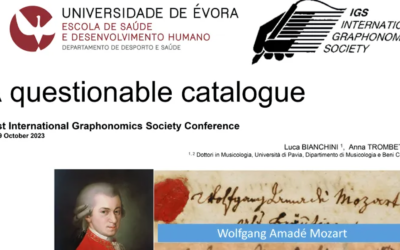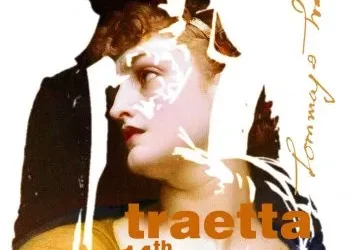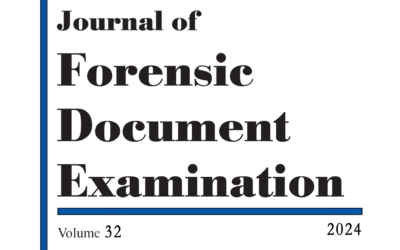Wolfgang Amadé Mozart
A Legacy Rewritten by the Shadows of History
Mozart’s image, often regarded as a universal symbol of musical genius, was heavily manipulated by the Nazi regime, a fact largely ignored in post-war efforts to “denazify” German culture. From propaganda-driven films to anti-Semitic narratives, Mozart’s legacy is far more complex and troubling than we are often led to believe.
Mozart: The Fall of the Gods
This book offers a fresh and critical look at the life of Wolfgang Amadeus Mozart, challenging the myths that have surrounded him for centuries. We strip away the romanticised image of the “natural genius” and delve into the contradictions within Mozart’s extensive biographies. Backed by nearly 2,000 meticulously sourced citations, this work invites readers to explore a deeper, more complex understanding of Mozart. Perfect for those who wish to question the traditional narrative, this biography is a must-read for serious music lovers and historians.
“Mozart, as well as Wagner, was awarded the title of honorary Nazi during the Third Reich.”
Mozart: The Fall of the Gods
In popular culture, Wolfgang Amadeus Mozart is often celebrated as a near-mythical figure, a genius whose music transcends time and borders. Yet, if we turn our gaze towards a different side of history, we find a more complex and less flattering legacy entwined with political manipulation and propaganda. Rather than the eternal “beloved of the gods,” Mozart’s image was exploited by regimes with questionable motives, most notably during the Nazi era.
After World War II, attempts were made by the Allied forces to cleanse German culture of its Nazi influences, a process known as “denazification.” Yet, despite the focus on prominent figures like Richard Wagner, Mozart’s association with the Nazi regime was largely overlooked. Throughout the Third Reich, Mozart’s music was manipulated to fit Nazi ideology, portraying him as a symbol of Aryan cultural superiority. Publications from the period were reissued, propaganda-ridden prefaces were left largely untouched, and revisions were minimal.
Heinrich Damisch, a fervent Nazi supporter and former director of the Wiener Mozart-Gemeinde, was central to this manipulation. Damisch not only contributed to anti-Semitic rhetoric but also continued to be celebrated in post-war Austria with high honours, despite his troubling legacy. His vile anti-Semitic views were ignored, and he was even honoured with the prestigious Gold Medal for services to the Austrian Republic in the late 1950s. This troubling complicity cast a long shadow on the legacy of Mozart and his association with the Salzburg Festival, a cultural institution deeply intertwined with Nazism.
Perhaps one of the most egregious examples of this tainted legacy is the film Wen die Götter lieben (Whom the Gods Love), commissioned by Joseph Goebbels in 1942. The film presented a heavily sanitised and distorted version of Mozart’s life, where figures such as Lorenzo Da Ponte, the Jewish librettist of The Marriage of Figaro, were erased, replaced by the Aryan Franz Süssmayr. This rewriting of history to fit Nazi ideology illustrates the extent to which Mozart’s image was co-opted to serve the regime’s goals.
Yet, after the war, this darker chapter of Mozart’s legacy was largely forgotten, overshadowed by the romanticised narrative of his “universal genius.” The uncomfortable truth about how his music and image were exploited was swept under the rug. Mozart remains, for many, a beacon of musical purity, while the shadows of history tell a far more disturbing tale.
In popular culture, Wolfgang Amadeus Mozart is often celebrated as a near-mythical figure, a genius whose music transcends time and borders. Yet, if we turn our gaze towards a different side of history, we find a more complex and less flattering legacy entwined with political manipulation and propaganda. Rather than the eternal “beloved of the gods,” Mozart’s image was exploited by regimes with questionable motives, most notably during the Nazi era.
After World War II, attempts were made by the Allied forces to cleanse German culture of its Nazi influences, a process known as “denazification.” Yet, despite the focus on prominent figures like Richard Wagner, Mozart’s association with the Nazi regime was largely overlooked. Throughout the Third Reich, Mozart’s music was manipulated to fit Nazi ideology, portraying him as a symbol of Aryan cultural superiority. Publications from the period were reissued, propaganda-ridden prefaces were left largely untouched, and revisions were minimal.
Heinrich Damisch, a fervent Nazi supporter and former director of the Wiener Mozart-Gemeinde, was central to this manipulation. Damisch not only contributed to anti-Semitic rhetoric but also continued to be celebrated in post-war Austria with high honours, despite his troubling legacy. His vile anti-Semitic views were ignored, and he was even honoured with the prestigious Gold Medal for services to the Austrian Republic in the late 1950s. This troubling complicity cast a long shadow on the legacy of Mozart and his association with the Salzburg Festival, a cultural institution deeply intertwined with Nazism.
Perhaps one of the most egregious examples of this tainted legacy is the film Wen die Götter lieben (Whom the Gods Love), commissioned by Joseph Goebbels in 1942. The film presented a heavily sanitised and distorted version of Mozart’s life, where figures such as Lorenzo Da Ponte, the Jewish librettist of The Marriage of Figaro, were erased, replaced by the Aryan Franz Süssmayr. This rewriting of history to fit Nazi ideology illustrates the extent to which Mozart’s image was co-opted to serve the regime’s goals.
Yet, after the war, this darker chapter of Mozart’s legacy was largely forgotten, overshadowed by the romanticised narrative of his “universal genius.” The uncomfortable truth about how his music and image were exploited was swept under the rug. Mozart remains, for many, a beacon of musical purity, while the shadows of history tell a far more disturbing tale.
You May Also Like
K.143: A Recitative and Aria in the Shadows of Doubt
K.143 is a prime example of how Mozart scholarship has turned uncertainty into myth. With no definitive evidence of authorship, date, or purpose, this uninspired recitative and aria in G major likely originated elsewhere. Is it time to admit this is not Mozart’s work at all?
The Enigma of Mozart’s Symphony K.73
The Symphony in C Major K.73 has long puzzled Mozart scholars. Touted as a youthful work of prodigious talent, its origins are murky at best. The title “Symphony,” inscribed on the first page of the autograph, is devoid of the composer’s name, casting immediate doubt on its attribution to Wolfgang Amadeus Mozart. Was this truly his work, or is the Symphony yet another victim of overzealous attribution?
Mozart’s Thematic Catalogue Exposed as a Forgery
A groundbreaking forensic analysis reveals that Mozart’s thematic catalogue, long thought to be his own work, is a posthumous forgery. This discovery, detailed in Mozart: The Construction of a Genius, turns centuries of Mozart scholarship on its head, demanding a re-examination of his legacy.
Bologna Connections
Quirino Gasparini’s rediscovered Mitridate aria takes centre stage in Bern and Basel, shedding light on Mozart’s reliance on this forgotten composer.
International Traetta Award
We are thrilled to announce that the 14th International Traetta Award has been bestowed upon Anna Trombetta and Luca Bianchini. This prestigious recognition honours their outstanding dedication to musicological research on primary sources of the European musical repertoire, offering significant contributions to reshaping the historiography of 18th-century music.
Unveiling the Truth Behind Mozart’s Thematic Catalogue
Anna Trombetta, Professor Martin W. B. Jarvis from Charles Darwin University, and Luca Bianchini, have published a peer-reviewed article titled Unveiling a New Sophisticated Ink Analysis Technique, and Digital Image Processing: A Forensic Examination of Mozart’s Thematic Catalogue. This research, which underwent an extensive double-blind peer review, has appeared in a journal that serves as a global reference point for forensic document examiners and court specialists.







